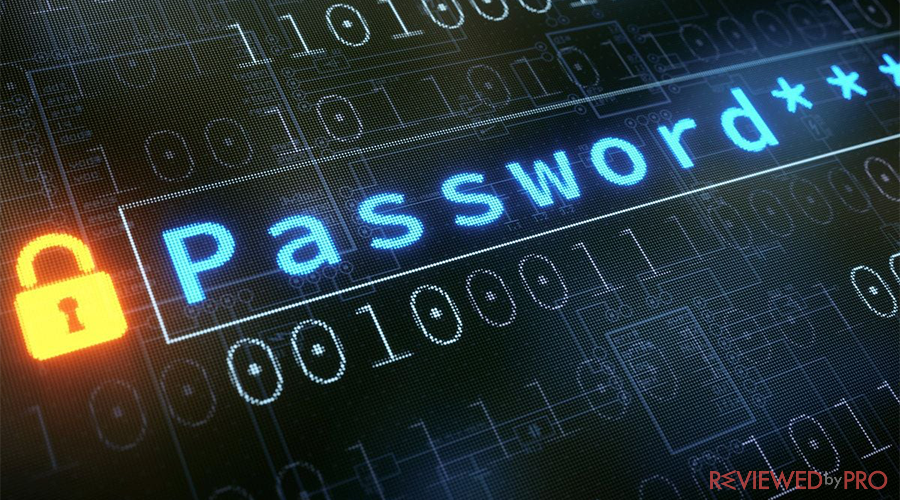
However, there are several reputable password generators available on the market that are highly regarded for their security and functionality. Some popular options include:
-
LastPass: LastPass is a widely recognized password manager that offers a built-in password generator. It generates strong, unique passwords for your accounts and securely stores them for easy access.
-
Dashlane: Dashlane is another popular password manager that provides a reliable password generator. It generates complex passwords and offers additional features like auto-fill and password syncing across multiple devices.
-
KeePass: KeePass is an open-source password manager that includes a password generator tool. It allows you to customize various password criteria, such as length, character types, and more.
-
1Password: 1Password is a well-regarded password manager that offers a robust password generator. It creates strong passwords with customizable options and provides a seamless user experience.
These are just a few examples of reputable password generators, and there may be other options available on the market as well. It's important to choose a password generator that aligns with your specific needs, offers strong encryption, and prioritizes data security. Additionally, it's recommended to do thorough research and read user reviews before selecting a password generator to ensure it meets your requirements and provides the level of security you desire.
Where to store generated passwords?
Generated passwords should be stored securely to ensure their protection. Here are some common methods for storing generated passwords:
-
Password Managers: Password managers are dedicated software applications that securely store and manage your passwords. They typically encrypt your passwords with a master password or key and provide features like autofill, password generation, and synchronization across devices. Examples of popular password managers include LastPass, Dashlane, and 1Password.
-
Offline Password Vaults: Some password managers offer offline password vaults that allow you to store your passwords locally on your device without syncing them to the cloud. This provides an extra layer of security, but it also means you'll need to manually back up and manage your password vault.
-
Encrypted Files: You can create an encrypted file, such as a password-protected archive or a secure document, to store your passwords. Tools like VeraCrypt, 7-Zip, or encrypted disk images on your operating system can help you create and manage these files.
-
Physical Storage: If you prefer a non-digital approach, you can write down your passwords on paper and store them in a secure location, such as a locked drawer or a safe. However, this method requires careful handling to prevent loss or unauthorized access to the physical copies.
Regardless of the storage method you choose, it's important to follow these best practices:
- Use strong and unique passwords for your password manager or encrypted files.
- Enable two-factor authentication for your password manager if available.
- Regularly back up your password database or encrypted files to prevent data loss.
- Keep your password manager and devices updated with the latest security patches.
- Protect your master password or encryption key and avoid sharing it with others.
- Be cautious of phishing attempts and ensure the security of the devices you use to access your passwords.
Remember, the security of your password storage is critical, as compromising your password storage can potentially expose all your passwords and lead to unauthorized access to your accounts.
What is the pross and cons of using password generators?
Using password generators can offer several benefits, but it's also important to consider potential drawbacks. Here are some pros and cons of using password generators:
Pros:
-
Strong and Secure Passwords: Password generators create complex and random passwords that are difficult for hackers to guess or crack. They typically include a combination of uppercase letters, lowercase letters, numbers, and special characters, providing a high level of security.
-
Unique Passwords for Each Account: Password generators allow you to generate unique passwords for every account you have. This is important because reusing passwords across multiple accounts increases the risk of a security breach. With a password generator, you can ensure that each account has its own distinct password.
-
Time-Saving: Creating strong passwords manually can be time-consuming and challenging. Password generators automate the process, saving you time and effort in coming up with unique and complex passwords.
-
Reduced Password Fatigue: With a password generator, you don't need to remember multiple complex passwords. Instead, you can rely on a password manager to securely store and autofill your passwords, reducing the burden of memorization.
Cons:
-
Dependency on a Password Manager: To fully utilize the benefits of password generators, it's recommended to use a password manager to store and manage your generated passwords. This means you may become reliant on the password manager software and need to ensure its security and reliability.
-
Difficulty in Remembering Generated Passwords: Randomly generated passwords can be challenging to remember, especially if they are long and complex. This can become a problem if you don't have access to your password manager or if you need to log in from a device without the password manager installed.
-
Trust in the Password Generator: It's important to trust the password generator you're using. While reputable password generators employ secure algorithms and encryption methods, there's always a small risk of potential vulnerabilities or compromised generators. Researching and choosing a trusted password generator is crucial to minimize this risk.
-
Lack of Personalization: Password generators focus on creating strong passwords based on specific criteria, but they may not align with your personal preferences or specific password requirements of certain platforms. In some cases, you may need to manually adjust the generated password to meet specific criteria.
It's important to weigh these pros and cons and consider your own preferences, needs, and level of comfort when deciding whether to use a password generator. Remember to combine the use of password generators with good security practices such as enabling two-factor authentication and regularly updating your passwords to maintain a strong and secure online presence.
How to choose the best password generator?
When choosing the best password generator, consider the following factors:
-
Security: The primary concern when selecting a password generator is its security. Look for generators that use strong encryption algorithms and secure randomization methods to ensure the generated passwords are truly random and resistant to brute-force attacks. It's also important to choose a password generator from a reputable and trustworthy source to minimize the risk of malware or compromised software.
-
Customization Options: Different websites and services have their own password requirements, such as minimum length, character types, and special character restrictions. A good password generator should allow customization options so that you can generate passwords that meet the specific requirements of the services you use.
-
Password Strength Indication: An ideal password generator will provide an indication of the strength of the generated passwords. This could be in the form of a password strength meter or a rating system that helps you gauge the effectiveness of the generated password in protecting your accounts.
-
Ease of Use: Look for a password generator that is user-friendly and easy to navigate. It should have a clear and intuitive interface that allows you to generate passwords quickly and efficiently.
-
Compatibility: Ensure that the password generator you choose is compatible with the devices and operating systems you use. Some password generators are web-based and accessible from any device with an internet connection, while others may be specific to certain platforms or operating systems.
-
Additional Features: Some password generators offer additional features, such as password storage, synchronization across devices, and automatic password changes. Consider whether these features align with your needs and preferences.
-
Reviews and Reputation: Before finalizing your choice, read reviews and consider the reputation of the password generator. Look for feedback from trusted sources or other users to get an idea of the generator's reliability, security, and user satisfaction.
Remember, it's generally recommended to use dedicated password managers that include password generation capabilities, as they provide a comprehensive solution for password management and security. Consider password managers that offer strong encryption, multi-factor authentication, and synchronization options for added convenience.
Ultimately, the best password generator for you will depend on your specific needs, preferences, and the level of security you require.




